of athletes from high-risk sports are estimated to experience a concussion each year.
Book An Appointment with Dr Casey Whife
Please call the practice to book your Appointment.
(08) 9382 9600Complete this form for immediate access to our Services Guide and ongoing access to all other website documents. No further forms required.
Complete this form for immediate access to our Services Pricing Guide and ongoing access to all other website documents. No further forms required.
Mon-Fri 8am-6pm
Mon-Fri 7am-7pm
Sat 8am-6pm
Sun 9am-12noon
Patient Notice:
more informationThere is growing concern in Australia and globally about sport-related concussion and the potential health ramifications for individuals who have suffered a concussion. If managed appropriately, most signs and symptoms of concussion, resolve spontaneously. However, complications can occur, including prolonged symptoms and increased susceptibility to further injury.
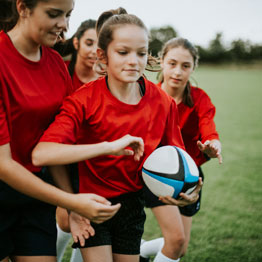
of athletes from high-risk sports are estimated to experience a concussion each year.
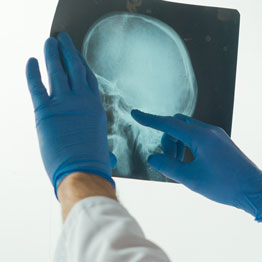
of high-risk sport athletes have reported suffering a concussion at some point in their sporting life.

of concussions are never reported to coaches, trainers or club medical staff.
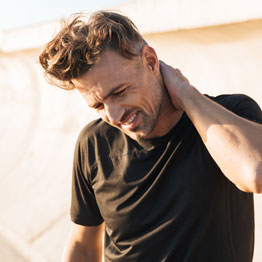
of reported concussions report persistent symptoms beyond 14 days with normal activities.
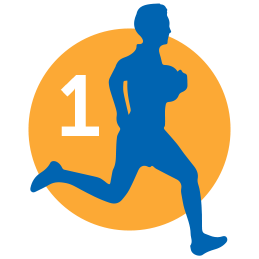
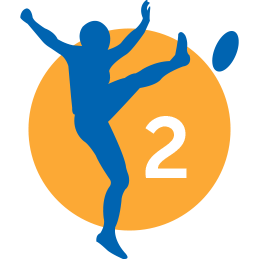



Reports the highest incidence of sports-related concussion in the world, right alongside American Football & Ice Hockey.
Elite AFL & AFLW also record some of the highest rates of concussion, however, at the sub-elite or amateur level the numbers are lower, this has been attributed to reduced speed and intensity of the game.
Less than 10% of concussions in high school soccer are caused by ball contact with the head (e.g headers). The most common cause of concussion in soccer? Colliding with another player. Females recorded higher concussion rates than males.
Due to the speed of fast bowlers and the hardness of cricket balls, cricket is still very much a high impact sport. Batters are the most susceptible to ball-impact related concussions.
Concussion rates are increasing in non-collision high-intensity court sports such as netball/basketball. Played in more confined spaces and on harder surfaces, accidental collision does occur and is the leading cause of concussion in basketball/netball (e.g. elbow contact to the head under the ring).
Our doctors and physiotherapists conduct thorough examinations to ensure sports-related concussions are accurately identified and appropriately managed.
Your concussion assessment involves a series of physical and cognitive tests as well as computerised neurocognitive assessment to provide insight into brain function.
Rest is no longer considered the best approach to concussion care. Early intervention of various therapies can significantly improve recovery following a concussion. Through a thorough assessment and the right treatment approach, Perth Concussion Centre can help patients safely return to learn, work and play.
The Buffalo Concussion Treadmill Test is a special test used by our concussion experts to assess the brain’s response to increased blood flow during activity after a concussion. The information obtained from a treadmill test can be used to guide your exercise progressions and return to activity.
Dizziness and visual disturbances are common following concussion. A rehab program incorporating balance and visual rehabilitation program may help to reduce symptoms such as dizziness, visual abnormalities, concentration issues and memory problems, among other symptoms.
Headaches, dizziness, balance and blood flow abnormalities are symptoms of both concussion and neck injuries (or whiplash). Often, ongoing symptoms can be generated by the neck which can be treated with manual therapy by our physiotherapists.
We are here to help, every step of the way and will provide up-to-date advice, guidelines and a step by step return to activity, taking the guess work out of return to play and getting you back to what you love.
We work closely with a network of specialist practitioners with special interests in sports-related concussion assessment & management to make sure you are getting the right advice and support throughout your rehabilitation & management.
Following proper return to work, learn or play guidelines, and receiving information about concussions, expectations of recovery and strategies for symptom management can help to reduce the risk.
In some cases, the effects of concussion can last for weeks or even months. If you experience symptoms with basic tasks or activities of daily living for more than 4 weeks, this is known as persistent symptoms (or sometimes called Post-Concussion Syndrome).
Rest is no longer considered the best approach to concussion care. Early intervention of various therapies can significantly improve recovery following a concussion
At Perth Concussion Centre we want to intervene early with persistent symptoms and this aligns with emerging evidence, so we don’t wait until 4 weeks to try an influence your symptoms with activities, we undertake a comprehensive assessment and testing process to optimise your recovery and successful return to symptom-free activity.
Treatment may involve addressing specific symptoms such a mood issues, anxiety, difficulty concentration or headaches. If you are experiencing ongoing problems post-concussion, please book a concussion appointment with our trained Sports Doctors (click) who will begin the process of comprehensive persistent symptoms management.
We want our patients to have the latest, evidence-based and medically-endorsed information about sports-related concussion. The below resources are internationally and/or nationally recognised resources, endorsed by Concussion experts as well as the Australian Medical Association, Australasian College of Sports & Exercise Physicians and the Australian Institute of Sport.
This concussion management flow chart provides references to on-field signs of concussion and red flags.
Download PDF BrochureA concussion is a mild traumatic brain injury that may cause a range of physical and cognitive symptoms.
Download PDF BrochurePracticing good sleeping habits is an important part of concussion management.
Download PDF BrochureReturn to sport protocol for adults over 18 years of age.
Download PDF BrochureReturn to sport protocol for children 18 years of age and under.
Download PDF BrochureConcussion is a complex physiological process affecting the brain due to a direct or indirect blow to the head, face, neck or body causing an impulsive force transmitted to the head.
Download PDF Brochure